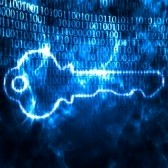 Most of us have a network with the Wi-Fi enabled and this is happening for several reasons. Most of us hate the wires, we have too many and we don’t want more. Some others have a device, such as smart phone, where we can’t put an Ethernet cable in it so there is no choice there. Having a Wi-Fi enabled network is very convenient but is it safe?
Most of us have a network with the Wi-Fi enabled and this is happening for several reasons. Most of us hate the wires, we have too many and we don’t want more. Some others have a device, such as smart phone, where we can’t put an Ethernet cable in it so there is no choice there. Having a Wi-Fi enabled network is very convenient but is it safe?
Having the default settings of your router is a bad idea. For instance, a while ago I have downloaded an app for my android device called ‘Penetrate’ and it was able to find almost any Wi-Fi password. The app shows you the default keys based on the model, network names and mac addresses. If you want to be protected from this kind of tools you should at least change your network name if the other settings are locked by your Internet Service Provider (ISP).
If your network is secured (as least that is what you think) with Wired Equivalent Privacy (WEP) then let me tell you that it is not. WEP was the first algorithm (1999) used to restrict access to wireless networks. Because of the fact that WEP can be cracked easily, Wi-Fi Alliance abandoned WEP (2003). If your password is protected with WEP, a beginner hacker or just anyone with the right tools can find it within minutes. And don’t think that a strong password will be helpful in this case because it is not. The length of the password does not affect the time needed for your password to be found. At least, after you read this, you should change WEP to Wi-Fi Protected Access (WPA).
WPA and WPA2 are more secure than WEP. This does not mean that you are secure and no-one can hack  your network. A skillful hacker can execute a brute force attack to your network and eventually find your password and penetrate your network. Brute force attack means that the hacker uses a program to test all possible combinations one by one. There is no authentication restriction in WPA and this makes it easier for the program to keep guessing passwords until it finds the correct one. In this case a strong password will help, this means it is a lengthy one (at least 8 characters) with combinations of letters (both upper-case and lower-case), numbers and other printable characters.
your network. A skillful hacker can execute a brute force attack to your network and eventually find your password and penetrate your network. Brute force attack means that the hacker uses a program to test all possible combinations one by one. There is no authentication restriction in WPA and this makes it easier for the program to keep guessing passwords until it finds the correct one. In this case a strong password will help, this means it is a lengthy one (at least 8 characters) with combinations of letters (both upper-case and lower-case), numbers and other printable characters.
There are some kind of passwords you should avoid using, not only for your network but in general. Do not use single words from dictionary, cracking programs first test those with are few thousands and can be cracked almost instantly. The same applies with words and a number sequence appended in the end, for example “dog2” is not secure. Also, do not use sequences from your keyboard like “qwerty”, “asdf” or “zxcv”. That applies to number sequences like pi, Fibonacci, “12345” etc. Replacing letters with numbers does not make your password stronger, for example “f1r3” is cooler but not much safer than “fire”. Finally, try to avoid personal information as passwords. Do not use your pet’s name or your birth date as a password because that information can be found very easily, especially nowadays with social networking being a big part of our lives.
Pingback:Steps to Secure your WordPress Blog » Michalis Nicolaides